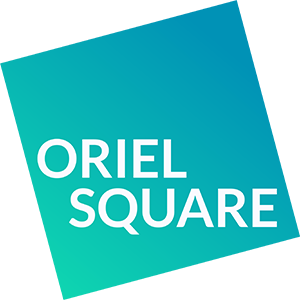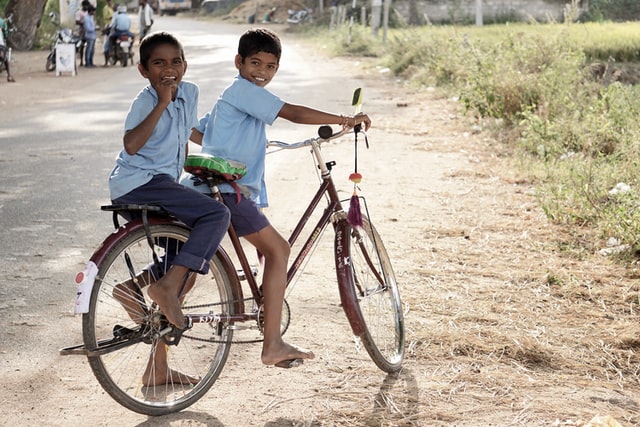Lessons from Pratham’s PAHAL intervention
by Ricardo Sabates (REAL Centre, University of Cambridge, UK) and Suman Bhattacharjea (ASER Centre, Delhi, India)
An intervention to build accountability for learning
PAHAL means ‘initiative’ in Hindi, but it also stands for Pratham Activity in Home And Learning.
Beginning well before the pandemic, the REAL Centre, ASER Centre, and Pratham Education Foundation have been collaborating on a project exploring whether, and how, accountability changes when school actors are supported to see their objective as raising all children’s learning in their local community. As part of the project, Pratham assessed children’s foundational skills and discussed the results with members of the community. The aim was to raise awareness of the extremely low levels of literacy and numeracy in rural Uttar Pradesh, India.
Given that awareness campaigns are unlikely to result in improvements in learning outcomes, Pratham:
Parent and teacher surveys showed a positive awareness of Pratham’s intervention both in schools and in the community.
- provided community volunteers and parents with training and materials which could be used to support children’s foundational learning;
- set up children’s reading groups and trained and supported local volunteers to run after-school learning clubs;
- supported local volunteers to organise village events which celebrated learning and promoted the idea that children’s learning is everyone’s responsibility.
Key lessons
- Tapping into the potential of households to support children with the development of foundational skills.
- Supporting parents and communities to build on foundational skills already acquired.
- Enabling schools to identify children’s actual level of learning and meet them with learning activities designed for that level.
- Finding new ways to communicate with and involve families and communities, as the potential for supporting learning is significant.
- Continuing to build shared responsibility for children’s learning between schools, communities and families.
After about a year of PAHAL activities, parents reported increased household engagement with their child’s learning.
Building school–community relationships
In order to enhance school–community relationships and maximise improvements in foundational learning, in one strand of the intervention Pratham additionally sought support and collaboration from local schools. Teachers were shown how to quickly assess foundational learning and support children at their current learning level. Meetings with parents were encouraged and supported, and teachers were asked to participate in community events.
Despite challenges imposed by elections, teacher strikes, and school shut-downs due to extreme weather, Pratham’s intervention took place from February 2019 until just before school closures due to COVID-19. Parent and teacher surveys showed a positive awareness of Pratham’s intervention both in schools and in the community. Over half of a sample of parents reported being aware of some of the activities and around half of the teachers surveyed were aware of the alternative teaching approaches demonstrated by Pratham teams in schools.
Teachers’ awareness of community activities was quite low, reflecting the traditionally limited communication between school and community.
The overall impact on parents, teachers and children
Enhanced parental agency, yet limited involvement with school
Research conducted in parallel to the intervention shows that after about a year of programme activities, parents reported increased household engagement with their child’s learning. Since many parents – and particularly mothers of sampled children – had not been to school themselves, this often took the form of support from older siblings. On the other hand, parental perceptions about teachers worsened over the course of the year. Even though more parents reported being invited to meetings with schools, this did not translate into increased engagement with the school.
Similarly, teachers’ awareness of community activities was quite low, reflecting the traditionally limited communication between school and community around teaching and learning. However, teachers who were aware of these activities were very likely to have participated in them.
Children who were part of the community intervention and who completely lacked foundational skills, were able to improve these skills at a faster rate.
Improved foundational literacy and numeracy
Overall, results of this intervention so far suggest that those children who were the worst off in terms of their foundational skills at the beginning of the project, did make significant gains in both reading and maths over the course of the year. Children who were part of the community intervention and who completely lacked foundational skills, were able to improve these skills at a faster rate than children in similar villages who were not part of the community learning activities.
Getting children’s learning back on track will require new ways of thinking about how schools and communities can engage with children as well as with each other.
Community and school involvement after COVID-19
COVID-19 has caused unprecedented disruptions to school systems everywhere, and the extent of the impact on children’s learning is yet to be understood. Children who had fragile foundational learning abilities to begin with are likely to be the worst hit, as they are the most likely to experience “learning loss” in addition to all of the other consequences of the pandemic.
Getting children’s learning back on track will require new ways of thinking about how schools and communities can engage with children as well as with each other to support this vital objective.
Acknowledgements: Funding for this project comes from the UK Economic and Social Research Council (ES/P005349/1) and from Wrigley Company Foundation.
Find out more about Pratham’s work.
If you are interested in how Oriel Square can help deliver learning solutions for your organisation please get in touch. You can find us on Twitter, Facebook and LinkedIn.

